第39章
"Why, mother!" he cried. "You don't suppose I should ever let you be turned out of house and home? You can stay here as long as you live.
But it has n't come to that, yet. I don't know that she cares anything about me. But there are chances, and there are signs. The chances are that she won't have the courage to take up her plan of life again, and that she'll consider any other that's pressed home upon her. And I take it for a good sign that she's sent that fellow adrift. If her mind had n't been set on some one else, she'd have taken him, in this broken-up state of hers. Besides, she has formed the habit of doing what I say, and there's a great deal in mere continuity of habit. It will be easier for her to say yes than to say no; it would be very hard for her to say no."
While he eagerly pressed these arguments his mother listened stonily, without apparent interest or sympathy. But at the end she asked, "How are you going to support a wife? Your practice here won't do it. Has she got anything?"
"She has property, I believe," replied her son. "She seems to have been brought up in that way."
"She won't want to come and live here, then. She'll have notions of her own. If she's like the rest of them, she'll never have you."
"If she were like the rest of them, I'd never have her. But she is n't.
As far as I'm concerned, it's nothing against her that she's studied medicine. She did n't do it from vanity, or ambition, or any abnormal love of it. She did it, so far so I can find out, because she wished to do good that way. She's been a little notional, she's had her head addled by women's talk, and she's in a queer freak; but it's only a girl's freak after all: you can't say anything worse of her. She's a splendid woman, and her property's neither here nor there. I could support her."
"I presume," replied his mother, "that she's been used to ways that ain't like our ways. I've always stuck up for you, Rufus, stiff enough, I guess; but I ain't agoin' to deny that you're country born and bred.
I can see that, and she can see it, too. It makes a great difference with girls. I don't know as she'd call you what they call a gentleman."
Dr. Mulbridge flushed angrily. Every American, of whatever standing or breeding, thinks of himself as a gentleman, and nothing can gall him more than the insinuation that he is less. "What do you mean, mother?"
"You hain't ever been in such ladies' society as hers in the same way.
I know that they all think the world of you, and flatter you up, and they're as biddable as you please when you're doctorin' 'em; but I guess it would be different if you was to set up for one of their own kind amongst 'em."
"There is n't one of them," he retorted, " that I don't believe I could have for the turn of my hand, especially if it was doubled into a fist.
They like force."
"Oh, you've only seen the sick married ones. I guess you'll find a well girl is another thing."
"They're all alike. And I think I should be something of a relief if I was n't like what she's been used to hearing called a gentleman; she'd prefer me on that account. But if you come to blood, I guess the Mulbridges and Gardiner, can hold up their heads with the best, anywhere."
"Yes, like the Camfers and Rafllins." These were people of ancestral consequence and local history, who had gone up to Boston from Corbitant, and had succeeded severally as green-grocers and retail dry-goods men, with the naturally attendant social distinction.
"Pshaw!" cried her son. "If she cares for me at all, she won't care for the cut of my clothes, or my table manners."
"Yes, that's so. 'T ain't on my account that I want you should make sure she doos care."
He looked hard at her immovable face, with its fallen eyes, and then went out of the room. He never quarrelled with his mother, because his anger, like her own, was dumb, and silenced him as it mounted. Her misgivings had stung him deeply, and at the bottom of his indolence and indifference was a fiery pride, not easily kindled, but unquenchable. He flung the harness upon his old unkempt horse, and tackled him to the mud-encrusted buggy, for whose shabbiness he had never cared before. He was tempted to go back into the house, and change his uncouth Canada homespun coat for the broadcloth frock which he wore when he went to Boston; but he scornfully resisted it, and drove off in his accustomed figure.
His mother's last words repeated themselves to him, and in that dialogue, in which he continued to dramatize their different feelings, he kept replying, "Well, the way to find out whether she cares is to ask her."